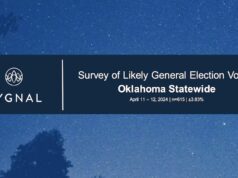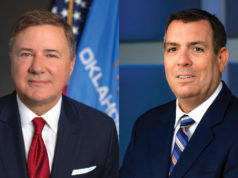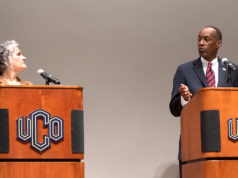

In February, McKinsey & Co. reached an almost $573 million settlement with 47 states, the District of Columbia and five territories that had sued the consulting company for its role in driving the opioid epidemic.
Oklahoma has received $8 million of that money. The opioid epidemic has been devastating for our state, and, as a valuation for all of the Oklahomans lost as a result of McKinsey’s role in dishonestly and harmfully pushing the sale of OxyContin, $8 million is not enough.
The recent settlement does not preclude any individual from bringing another suit against McKinsey, and I strongly urge Attorney General Mike Hunter to continue his pursuit of this issue for all Oklahomans.
Oklahomans deserve their day in court, and we must work to alleviate the pain of those who have suffered, especially in rural areas of our state.
A multi-layered tragedy
Like a disease, opioid addiction and overdoses victimize children, parents, friends and neighbors without warning.
In America, the epidemic has killed more than 450,000 people. Rural areas have been hit particularly hard, and a report by the Centers for Disease Control shows that overdose deaths are rising in the rural U.S. generally. In 2015, the overdose death rate for rural areas surpassed the rate for urban or suburban areas, and people living in rural areas were four times more likely to die from overdoses in 2015 than they were in 1999.
According to the CDC, doctors in Oklahoma are more likely than those in most other states to prescribe dangerous painkillers such as OxyContin. In 2018, providers in Oklahoma prescribed 79.1 opioid prescriptions for every 100 people, significantly more than the national average rate of 51.4 prescriptions.
As a result, we’ve lost thousands to overdoses that can be contributed to opioids — a loss that is all too real for families in both big cities and every rural corner of our state.
This tragedy has another layer as well: It has infected a fundamental trust between patient and health care provider. The deceptions of drug companies and their partners resulted in patients unknowingly and trustingly accepting death by prescription. It’s time these companies were held accountable.
Pharmaceutical companies knew the dangers
Recently, it has become clear how our health care system became so corrupt and hazardous. We now know that pharmaceutical companies were well aware of the addictive properties of opioids but ignored those risks in order to keep profits rolling in. Specifically, Purdue Pharma, the manufacturer of OxyContin, deceptively pushed its drug despite the dangers and was aided in this effort by McKinsey.
Pertinent to Oklahoma, McKinsey advised Purdue regarding how to increase sales of the drug. The advice included ways to fend off regulation and the suggestion of offering distributers rebates for pills that led to overdoses. In other words, McKinsey, with blatant disregard for human life, advised Purdue to pay partners who may have contributed to Oklahoma opioid deaths.
McKinsey & Co. knowingly and actively worked to slip dangerous narcotics into our pockets. They were fully aware of the potential for loss of life and still moved forward. Is $8 million really the price tag we’ve thrown on this issue?
From a company worth $11 billion, we need more to alleviate the pain of Oklahomans.




















